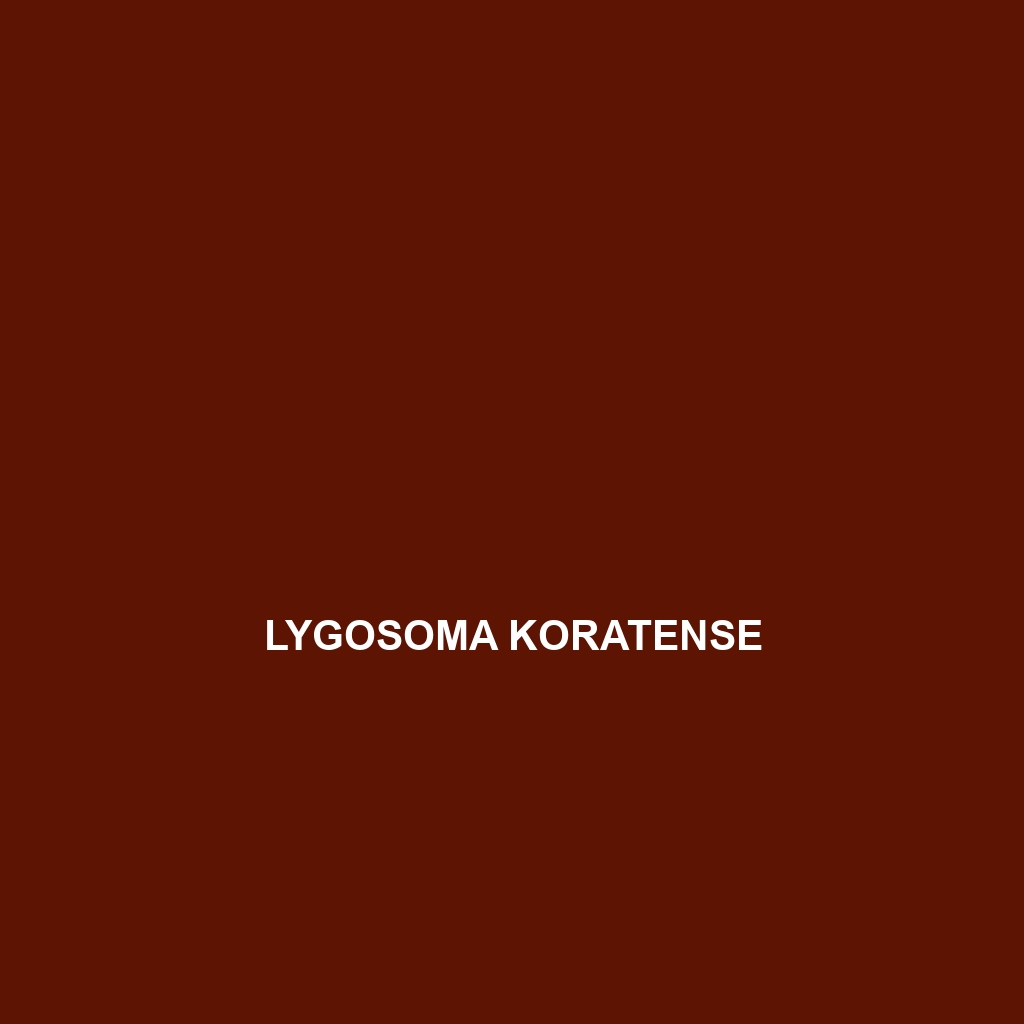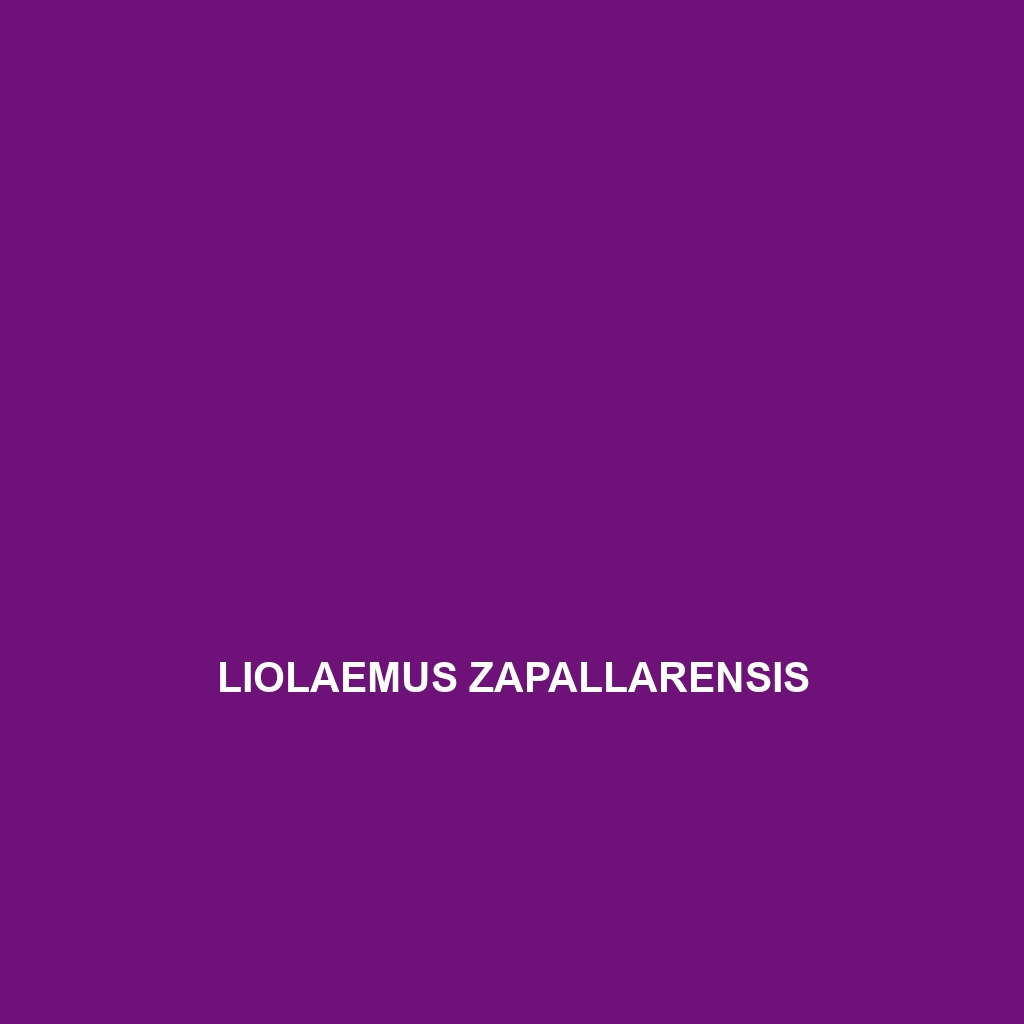<p><b>Lygosoma kinabatanganense</b>, or the Kinabatangan skink, is a medium-sized insectivorous skink native to the tropical rainforests of Malaysia's Sabah region, known for its sleek, shiny scales, and agile behavior. This species plays a crucial role in its ecosystem by regulating insect populations while showcasing remarkable adaptability to various habitats.</p>
Tag: adaptation in reptiles
Lipinia relicta
<div class="woocommerce-product-details__short-description"> <p><b>Lipinia relicta</b> is a vulnerable insectivorous species found in Southeast Asia's rainforests and coastal areas, known for its agile climbing abilities and remarkable camouflage. With a growth length of 15 to 30 centimeters, it plays a crucial role in controlling insect populations and maintaining ecological balance.</p> </div>
Liolaemus zapallarensis
Discover the vibrant Liolaemus zapallarensis, a unique lizard native to the rocky coastal regions of central Chile, featuring distinctive coloration that varies from brown to vibrant green or blue during mating season. These resilient insectivores thrive in semi-arid habitats, playing a vital role in their ecosystem by regulating insect populations while acting as both predator and prey.
Liolaemus tehuelche
<p><b>Liolaemus tehuelche</b>, a fascinating lizard native to southern Argentina, thrives in rocky, arid environments and reaches lengths of 15-20 cm. With its sandy or light brown coloration and distinctive dark bands, this insectivorous species plays a crucial role in its ecosystem by regulating insect populations while exhibiting remarkable adaptability to its habitat.</p>
Liolaemus pacha
Discover the resilient Liolaemus pacha, a unique lizard native to the high-altitude Andes of northern Chile and Argentina, known for its vibrant coloration and intricate patterns that provide excellent camouflage. This insectivorous species exhibits fascinating behaviors, including diurnal basking and tail autonomy for predator avoidance, making it a remarkable subject of ecological study.
Liolaemus lineomaculatus
Liolaemus lineomaculatus, known for its striking earthy tones and unique light spot patterns, is a medium-sized lizard native to the temperate forests and shrublands of southern South America. This diurnal insectivore is an agile climber, playing a crucial role in controlling insect populations and contributing to ecosystem balance.
Liolaemus dicktracyi
Discover the Liolaemus dicktracyi, a stunning lizard native to the high-altitude grasslands and temperate forests of the Andean regions, measuring 10 to 15 cm with striking sandy beige and olive green coloration. Adapted for life at elevations of 1,500 to 3,200 meters, this diurnal insectivore showcases fascinating social behaviors and plays a critical role in its ecosystem.
Liolaemus crepuscularis
<b>Liolaemus crepuscularis</b> is a compact lizard, measuring 10-15 cm, native to the temperate forests and savannas of southern South America. Adaptable and primarily insectivorous, it exhibits fascinating diurnal and nocturnal behaviors, territorial displays, and a unique reproductive cycle that involves live birth.
Liolaemus calchaqui
Discover the intriguing Liolaemus calchaqui, a medium-sized lizard native to the rocky terrains of northwestern Argentina's Calchaquí Valleys. With its unique coloration, diurnal behavior, and vital role in controlling insect populations, this resilient species thrives in arid conditions, showcasing fascinating mating rituals and adaptability to extreme temperatures.
Lerista puncticauda
<b>Lerista puncticauda</b>, known as the dot-tailed lerista, is a slender, nocturnal reptile native to the temperate forests and savannas of eastern Australia, characterized by its light-brown coloration with dark speckles and distinguished by its pointed tail. As an insectivore, it plays a crucial role in controlling insect populations and contributes to soil aeration through its burrowing habits.









